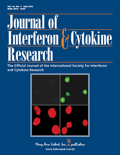
Journal of Immunology Research
Scope & Guideline
Innovating Immunological Science: Bridging Knowledge Globally
Introduction
Aims and Scopes
- Immune Mechanisms in Disease:
The journal publishes research on the underlying mechanisms of immune responses in various diseases, including autoimmune disorders, cancers, and infectious diseases. This includes studies on cytokine profiles, immune cell interactions, and the role of specific immune pathways. - Therapeutic Applications of Immunology:
Research that explores therapeutic strategies based on immunological principles, including immunotherapy, vaccine development, and the use of immune modulators. This includes the evaluation of novel therapeutic agents and treatment protocols in clinical settings. - Translational Immunology:
The journal emphasizes translational research that bridges basic immunology with clinical applications, focusing on how laboratory findings can inform clinical practice and improve patient outcomes. - Bioinformatics and Systems Biology:
The integration of bioinformatics approaches to analyze immunological data, including gene expression profiles, immune cell signaling pathways, and immune landscape characterization in different diseases. - Environmental and Lifestyle Factors in Immunology:
Studies that investigate how environmental exposures, diet, and lifestyle factors influence immune responses, susceptibility to diseases, and treatment outcomes.
Trending and Emerging
- Immunotherapy and Cancer:
A significant increase in research related to immunotherapy, particularly CAR-T cell therapy and checkpoint inhibitors, highlights the growing interest in harnessing the immune system to combat cancer. - Microbiome and Immune Interactions:
Emerging research on the role of the gut microbiome in modulating immune responses and its implications for diseases such as autoimmune disorders and cancer is gaining traction. - Inflammation and Immune Response in Chronic Diseases:
An uptick in studies examining the role of chronic inflammation in diseases like diabetes, cardiovascular diseases, and neurodegenerative disorders suggests a growing recognition of the interplay between immunity and chronic health conditions. - Precision Medicine in Immunology:
Research focusing on personalized immunological approaches tailored to individual patient profiles, including genetic and biomarker assessments, is increasingly prevalent. - Role of Non-coding RNAs in Immunity:
The exploration of non-coding RNAs, particularly in regulating immune responses and their potential as therapeutic targets, is emerging as a significant area of interest.
Declining or Waning
- Classic Vaccine Studies:
Research centered on traditional vaccine development and evaluation has decreased, possibly due to the shift towards newer technologies such as mRNA vaccines and personalized immunotherapies. - Basic Immunology Without Clinical Correlation:
Papers focusing solely on basic immunological mechanisms without a clear clinical connection have become less frequent, reflecting a trend towards more applied and translational research. - General Allergy Research:
While allergy remains an important area, specific studies on general allergy mechanisms without a focus on novel therapeutic approaches or environmental impacts have waned.
Similar Journals

JOURNAL OF CLINICAL IMMUNOLOGY
Unveiling Breakthroughs in Clinical ImmunologyJOURNAL OF CLINICAL IMMUNOLOGY, published by SPRINGER/PLENUM PUBLISHERS, is a leading journal in the field of immunology, with an impressive standing as reflected in its Q1 ranking in both Immunology and Immunology and Allergy for 2023. With a history of publication dating back to 1981 and an E-ISSN of 1573-2592, this journal aims to disseminate cutting-edge research on diagnostic methods, therapeutic strategies, and understanding the mechanisms underlying immune responses. Its significant impact is underscored by its Scopus rankings, where it is placed in the top 15% of journals covering immunology and microbiology. The journal does not currently operate under an Open Access model, yet offers a robust platform for sharing essential findings that contribute to advancements in clinical immunology. As a resource for researchers, professionals, and students, the JOURNAL OF CLINICAL IMMUNOLOGY is pivotal in fostering dialogue and disseminating knowledge that enhances our understanding of immune-related diseases.

OncoImmunology
Shaping the Future of Cancer Research Through Immune DiscoveryOncoImmunology is a leading peer-reviewed journal published by Taylor & Francis Inc, dedicated to advancing the understanding of the dynamic interplay between the immune system and cancer. Established in 2012 and adopting an open access model since 2020, OncoImmunology provides a platform for high-quality research disseminated globally, with a notable focus on innovative therapies and immunotherapeutic strategies aimed at improving patient outcomes. The journal boasts an impressive impact in the field, holding Q1 rankings in both Immunology and Oncology categories for 2023, and it is recognized within the top-tier journals in its domain, reflected in its Scopus ranks and percentiles. With contributions from leading experts and a wide audience of researchers, clinicians, and advanced students, OncoImmunology not only facilitates scholarly dialogue but also addresses pivotal challenges in cancer treatment, making it an essential resource for those invested in the future of oncological and immunological research.

CELLULAR IMMUNOLOGY
Connecting Scholars in Cellular ImmunologyCELLULAR IMMUNOLOGY is a prestigious journal published by Academic Press Inc. Elsevier Science, dedicated to advancing the field of immunology. Established in 1970 and converging ongoing research up to 2024, this journal has carved out a significant niche within the academic community, boasting a notable Q2 ranking in the Immunology category and holding a respectable 67th percentile ranking within Scopus for its contributions to the disciplines of Immunology and Microbiology. The journal serves as a vital platform for disseminating high-quality research, reviews, and methodologies that elucidate the intricacies of cellular immune responses, thereby benefiting researchers, professionals, and students alike. Although it does not offer open access, the journal's impact is evidenced by its comprehensive coverage of pioneering studies and ongoing developments in the immunological sciences, positioning it as an essential resource for those seeking to deepen their understanding and engage with the latest findings in cellular immunology.

EUROPEAN JOURNAL OF IMMUNOLOGY
Advancing Immunology Through Pioneering ResearchWelcome to the European Journal of Immunology, a premier peer-reviewed journal dedicated to advancing the field of immunology and allergy research. Established in 1971 and published by Wiley, this esteemed journal has been consistently ranked in the top quartile (Q1) across its categories, highlighting its significant impact within the scientific community. With an impressive Scopus ranking, the journal occupies the 64th position in Immunology and Allergy and the 74th in the broader sector of Immunology and Microbiology, demonstrating its vital role in driving innovation and knowledge in immunological studies. The European Journal of Immunology publishes high-quality original research, comprehensive reviews, and insightful commentary, making it an indispensable resource for researchers, healthcare professionals, and students dedicated to understanding the complexities of the immune system. Although not an open-access journal, it offers various subscription options to ensure that institutions and individuals can access pivotal research that shapes the future of immunology.

Immunity Inflammation and Disease
Elevating the discourse on therapeutic strategies for inflammatory diseases.Immunity, Inflammation and Disease is a premier open-access journal published by WILEY, dedicated to advancing the field of immunology and allergy. Launched in 2013, this journal has established itself as a significant platform for researchers and professionals to disseminate high-quality research findings and innovative insights that address critical issues in immune responses and inflammatory diseases. With an impact factor that reflects its growing influence and a current ranking in Q3 for Immunology and Q2 for Immunology and Allergy, this journal serves a diverse audience keen on exploring cutting-edge developments. Researchers are encouraged to submit their work to share their findings with a global reach, foster collaboration, and enhance the understanding of immune mechanisms and therapeutic strategies. Accessible since its inception, Immunity, Inflammation and Disease is committed to open science, ensuring that vital research is freely available for the advancement of knowledge within the academic community and beyond.

IMMUNOLOGY LETTERS
Fostering Collaboration Through Cutting-edge ResearchIMMUOLOGY LETTERS, published by Elsevier, is a distinguished journal in the field of immunology, focusing on the latest advancements and findings that significantly influence immunological research and clinical applications. Established in 1979, the journal has evolved to cater to a global readership, featuring high-quality peer-reviewed articles across a diverse spectrum of topics related to immunity and allergic responses. With an impressive Q2 category ranking in both Immunology and Allergy as of 2023, it holds a strong position within the scientific community, evidenced by its commendable Scopus rankings (Rank #71/233 in Medicine - Immunology and Allergy and Rank #85/236 in Immunology and Microbiology - Immunology). While primarily subscription-based, the journal aims to foster knowledge dissemination that encourages collaboration among researchers and practitioners alike, making significant contributions to the understanding of immune mechanisms. The journal is integral for educators, students, and professionals aiming to stay abreast of current trends and breakthroughs in the immune system's intricate functions.

SCANDINAVIAN JOURNAL OF IMMUNOLOGY
Cultivating Knowledge in the Evolving Field of ImmunologyScandinavian Journal of Immunology is a prestigious peer-reviewed journal published by Wiley, focused on the evolving field of immunology and its interdisciplinary ties with medicine. Since its inception in 1972, this journal has cultivated a rich repository of knowledge, showcasing innovative research and reviews that contribute to the understanding of immune system functions, disorders, and therapeutic interventions. With an impressive impact factor reflecting a Q2 ranking in Immunology and a top-tier Q1 status in miscellaneous Medicine categories for 2023, it is recognized for its high-quality scholarly output, positioning it among the leading journals in the field. Additionally, its Scopus ranking of #84 out of 236 in Immunology underscores its significance and relevance to both emerging and established researchers. Although it does not currently offer open access options, the journal’s expansive reach and rigorous publication standards make it an essential platform for disseminating impactful research to the global scientific community. The journal invites submissions that explore the complexities of the immune system, aiming to bridge clinical and basic science for a comprehensive understanding of immunological phenomena.

JOURNAL OF INTERFERON AND CYTOKINE RESEARCH
Unlocking the Mysteries of Immune SignalingJOURNAL OF INTERFERON AND CYTOKINE RESEARCH, published by Mary Ann Liebert, Inc, stands out as a pivotal resource in the fields of immunology, virology, and cell biology, providing comprehensive insights into cytokine functions and their roles in immune responses. With ISSN 1079-9907 and E-ISSN 1557-7465, the journal aims to disseminate innovative research that advances our understanding of interferon and cytokine biology, a crucial aspect for developing therapeutic strategies against various diseases. Covering a broad scope of research from 1995 to 2024, it boasts a respectable impact factor within its category quartiles, ranking Q2 in Medicine (miscellaneous) and Q3 in the domains of Cell Biology, Immunology, and Virology as of 2023. While it does not provide open access options, the journal remains essential for academics, researchers, and professionals dedicated to exploring the complexities of immune signaling pathways and their implications for health and disease. The journal’s consistent contribution to scientific discourse underscores its importance in elevating query-driven studies to foster advancements in biomedical science.

Cellular & Molecular Immunology
Unraveling the Mysteries of ImmunityCellular & Molecular Immunology is a prestigious peer-reviewed journal published by the CHIN SOCIETY IMMUNOLOGY. As a leading journal in the fields of immunology and infectious diseases, it proudly holds a Q1 designation across multiple categories, including Immunology, Allergy, and Medicine (Miscellaneous), reflecting its commitment to excellence and impactful research. With an ISSN of 1672-7681 and an E-ISSN of 2042-0226, the journal has been essential reading since its inception in 2004, continuously gathering insights from cutting-edge studies. It ranks impressively within Scopus, with positions in the 7th, 8th, and 9th percentile in relevant categories, establishing it as a cornerstone for researchers, clinicians, and students alike. The journal offers an extensive range of original research articles, reviews, and clinical studies, ensuring that readers stay at the forefront of immunological discovery. Whether you are interested in basic immunology, infectious diseases, or evolving therapies, Cellular & Molecular Immunology serves as an invaluable resource for advancing your knowledge and engagement in this dynamic field.

IMMUNOBIOLOGY
Connecting researchers to revolutionize the understanding of immune systems.IMMUNOBIOLOGY is a prestigious academic journal published by Elsevier GmbH that significantly contributes to the fields of hematology and immunology. With its ISSN 0171-2985 and E-ISSN 1878-3279, this journal has been disseminating impactful research since 1979, positioning itself at the forefront of immunological and hematological advances. The journal holds a commendable ranking of Q2 in Hematology and Q3 in both Immunology and Immunology and Allergy, indicating its relevance and influence within the scientific community, as reflected by its Scopus rankings. Although IMMUNOBIOLOGY operates under a subscription model, it remains dedicated to expanding knowledge across disciplines, fostering innovative research, and facilitating connections among researchers, professionals, and students. Situated in Munich, Germany, this journal is continually evolving and aims to remain an essential resource for the latest discoveries and insights in the realms of immunity and blood disorders, ultimately enhancing our understanding of complex biological systems.